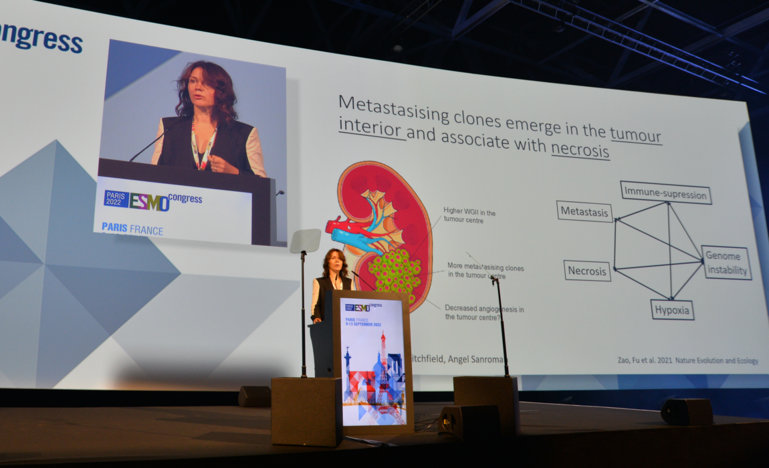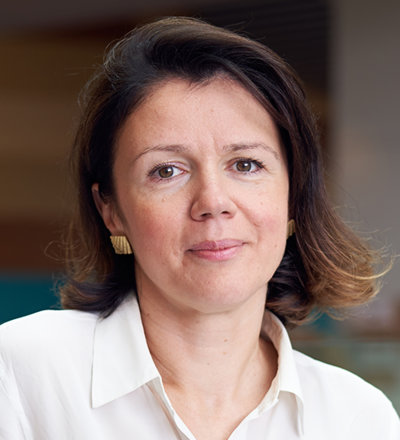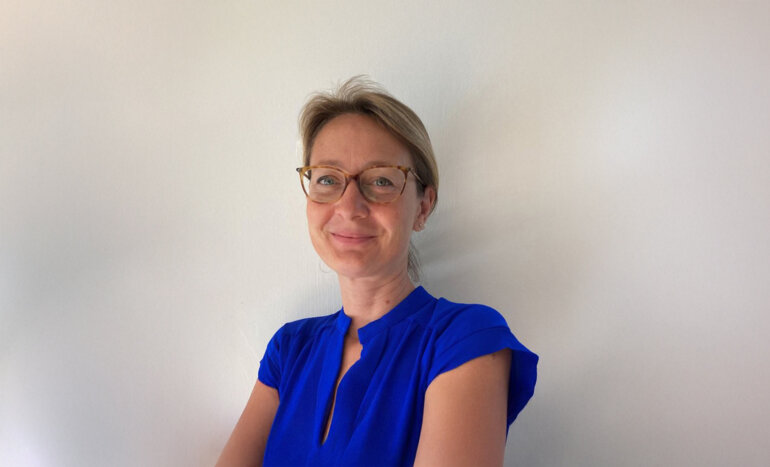However, according to the winner of the ESMO Award for Translational Research 2022, Dr Samra Turajlic, results will only be achieved through a collaborative effort of the oncology community
Recipient of the ESMO Award for Translational Research 2022, Dr Samra Turajlic from the Royal Marsden NHS Foundation Trust and The Francis Crick Institute, London, UK discusses her work on the evolution of renal cell tumours and how this can be integrated with clinical research to support personalised medicine in the future.
How has your research contributed to our understanding of the evolution of renal cancers?
The greatest challenge in oncology today is predicting disease course in individual patients. Renal cancer is an excellent example of variability in cancer progression, with manifestations ranging from small, indolent tumours to large primary tumours that metastasise quickly and have extremely poor outcomes. I have been part of a large collaborative effort to study this variability and we are now beginning to understand that the order, timing and combination of different genetic alterations can be reconciled with clinical observations. This is a fundamental finding that ultimately needs to be translated to a clinical setting, perhaps using machine learning methodologies to enable it to be evaluated routinely. We have also demonstrated that all renal cancers converge on the same genetic route to become metastatic and that this involves large changes at the chromosomal level rather than mutations in individual genes. In one of our most recent studies, we were also able to show that the immune system can be primed by a tumour leading to the infiltration of lymphocytes that are already tumour reactive. This gives us hope that treatments such as adoptive cell therapy could be derived from renal tumours.
What translational aspects are you researching at the moment?
We have recently developed a novel method of profiling tumours that takes advantage of surplus tissue after surgery. We are homogenising the tissue to create a sample that is analogous to a blood sample taken from a patient with blood cancer. This should avoid the sampling bias that is typical of solid tumours and enable us to obtain information that is representative of the whole tumour. We aim to establish the feasibility of this method in the clinic, allowing us to gain insights into cancer evolution and the genetic landscape of different cancers. It should also make a real difference to patients, providing the most comprehensive information about their tumour right from diagnosis.
What are the key challenges faced in translational research today?
We are working in very exciting times in terms of technological advances and as a community, we are generating a vast amount of data. We now need to develop sophisticated methodologies that will enable us to integrate all of this diverse information. What is also becoming apparent is that personalised medicine is not going to be underpinned by a single parameter but will require multiparametric measurements. We will need to find a way to integrate this into routine clinical practice and I believe that this is where machine learning and artificial intelligence will be helpful. However, no single research group can deliver this – it will require collaboration across the whole research community.
How do you think translational research can change the treatment landscape for patients in the future?
For those of us who work in translational research, the obvious goal is to achieve personalised medicine for patients. However, this can only be reached by breaking down boundaries and allowing translational research to become ingrained in clinical research. Also, the infrastructure needs to be expanded so that all patients can take part in research, even if they do not live near a large cancer centre. Research is currently too centralised, with only a small proportion of people diagnosed with cancer having the opportunity to participate in scientific studies. Every patient can provide us with information about cancer evolution and we need to ensure that these opportunities are not lost.
Don't miss:
Turajlic S. Making sense of cancer evolution for patient benefit. ESMO Congress 2022
ESMO Translational Research Award Lecture, 09.09.2022, h. 12:00 – 13:45, Paris Auditorium







